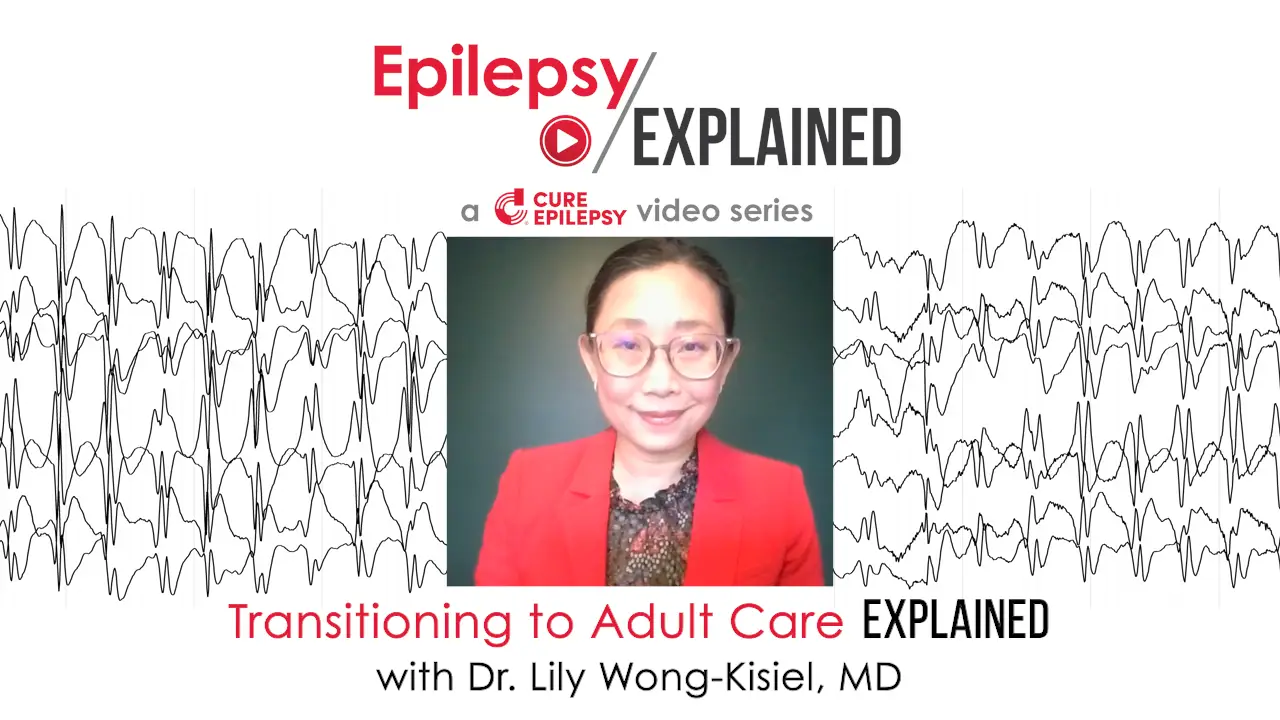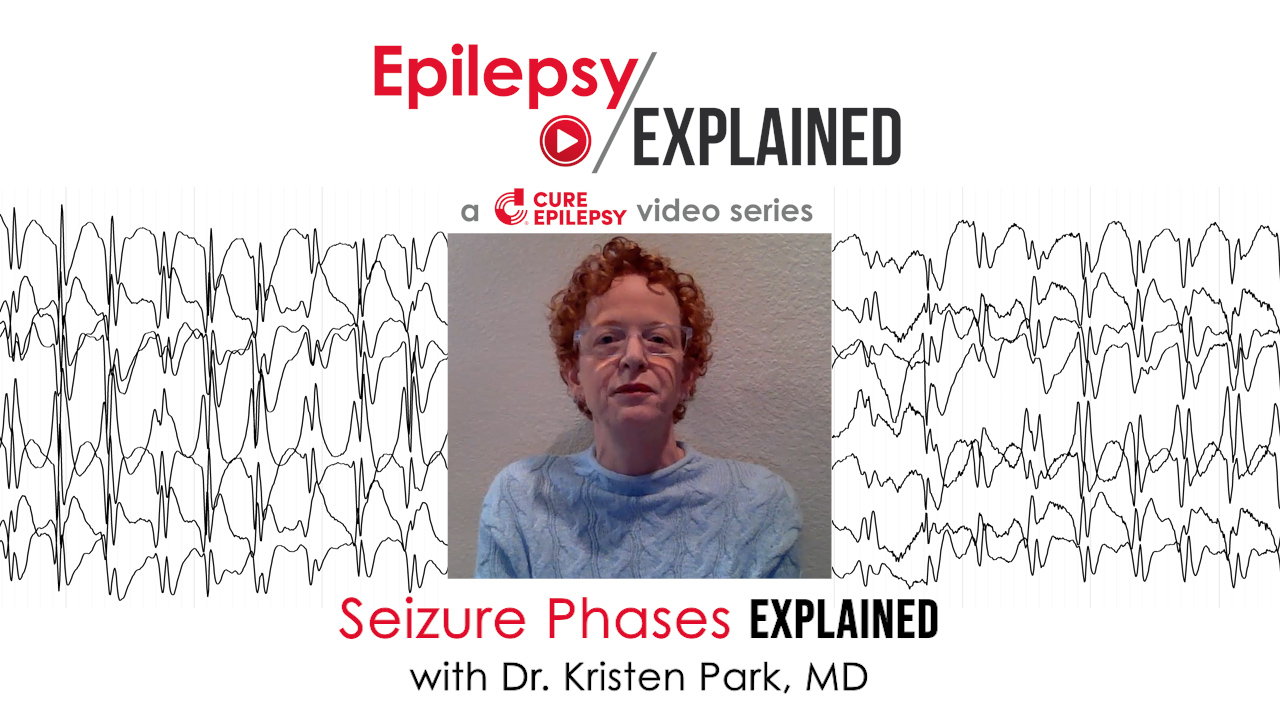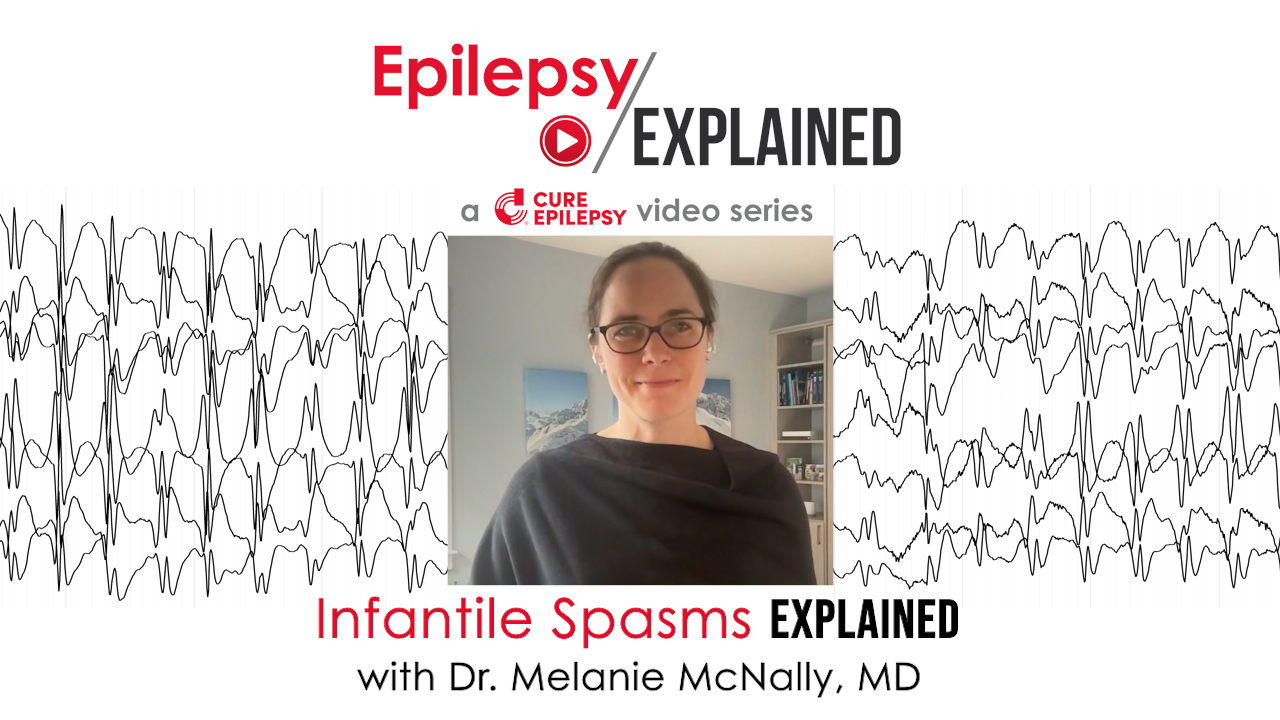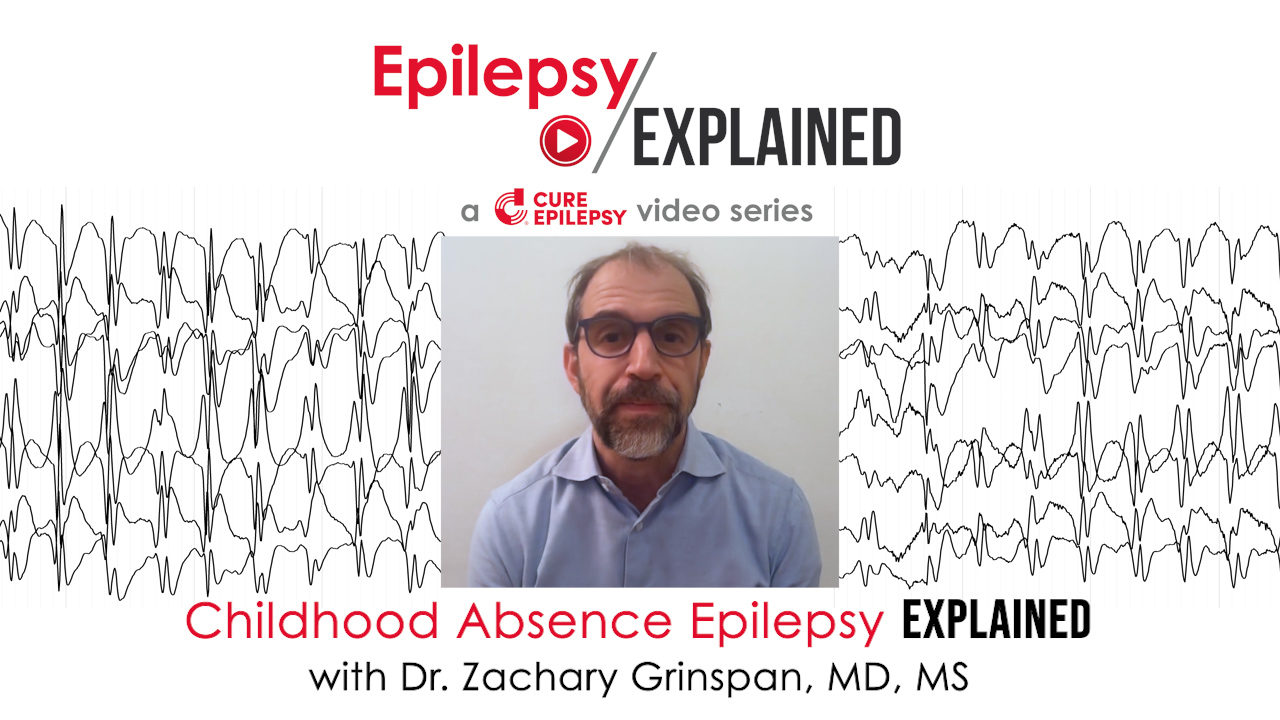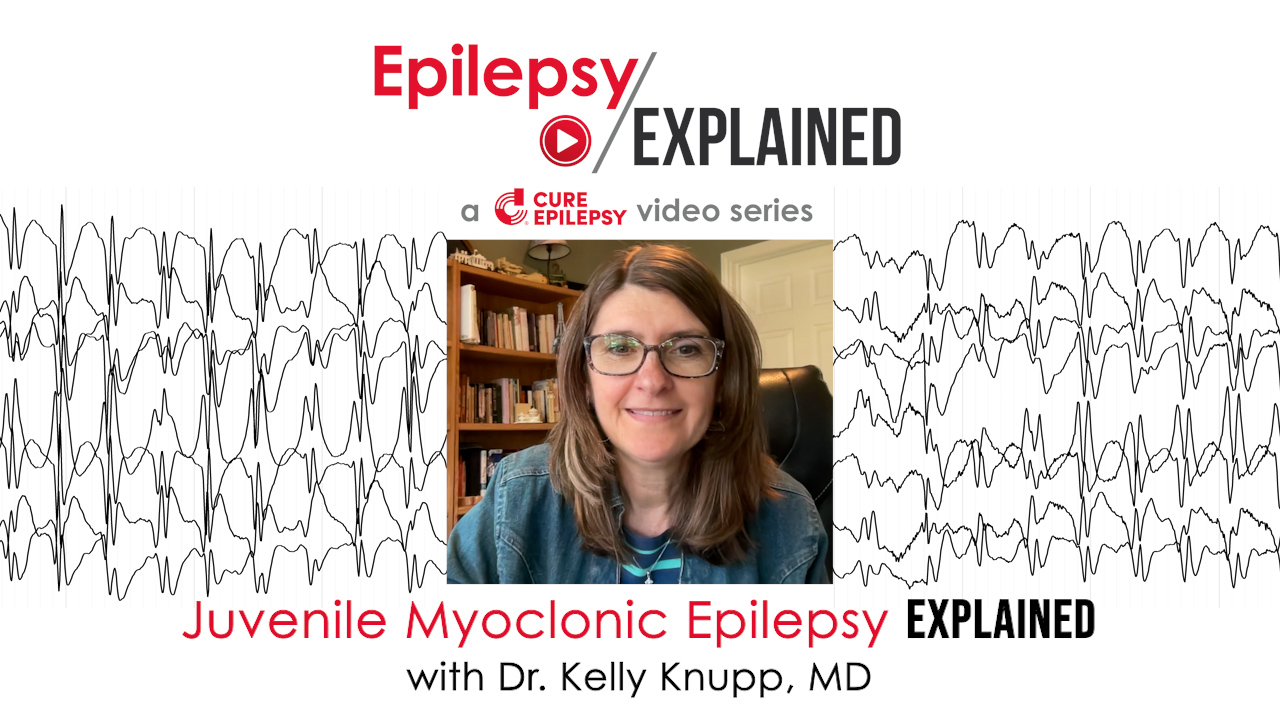What to Know about Transitioning from Pediatric Epilepsy Care to Adult Epilepsy Care
This month on Epilepsy Explained we focus on transitioning a from pediatric epilepsy care to adult epilepsy care. Dr. Lily Wong-Kisiel, pediatric epileptologist at Mayo Clinic in Rochester, Minnesota, answers your questions about transitioning a child with epilepsy from pediatric to adult care.
In “Transitioning to Adult Care Explained”, Dr. Wong-Kisiel answers the following questions:
0:18 At what age should I begin thinking about transitioning my child to adult epilepsy care?
1:04 I have heard the terms “transferring care” and “transitioning care”. Is there a difference?
2:07 My child has a primary care doctor and a pediatric neurologist. Do I need to transition both the primary and the neurologic care to adult doctors? If so, should I transition to these adult doctors at the same time?
3:47 How do I find an adult neurologist for my child? Should I ask my child’s pediatric neurologist for a referral?
4:37 What should I expect from the pediatric neurologist and the adult neurologist during the transition to adult epilepsy care?
6:10 What do I need to do, and what does my child need to do to facilitate the move to adult epilepsy care?
7:16 Are there any resources you can recommend to help with the transition to adult epilepsy care?
Resources for Transitioning to Adult Epilepsy Care
- Child Neurology Foundation: Transition of Care
- Got Transition®
- National Resource Center for Supported Decision Making Supported Decision-Making | National Resource Center
Source: Epilepsy Resources for Health Care Professionals: Health Care Transition
Look for new episodes of Epilepsy Explained on the third Wednesday of every month on CURE Epilepsy’s YouTube Channel and on our website at: https://www.cureepilepsy.org/epilepsy-explained/
If you would like to submit questions for future episodes of Epilepsy Explained, please go to: https://www.cureepilepsy.org/epilepsy-explained/
Video Transcript
At what age should I begin thinking about transitioning my child to adult epilepsy care?
Dr. Lily Wong-Kisiel:
Every child has a unique circumstance, so we need to think about transition readiness, whether the child is ready and prepared and able to take some self-care management. It’s going to be different for a child with normal intellectual ability versus one who has cognitive or intellectual difficulties. The American Epilepsy Society talks about thinking and discussing this around 10 to 12 years at age, but there’s not a definite time frame, and it depends on the patient.
I have heard the terms “transferring care” and “transitioning care”. Is there a difference?
Dr. Lily Wong-Kisiel:
So, transfer of care refers to a specific time point when the care is moved from the pediatric epileptologist to the adult team. The transition care or transition management is a process. It’s a period of time where there’s planning, preparing the patient and the family, and as it gets closer to the time it’s transferred, to involve the receiving team to ensure that they have the adequate medical information, expectations set up to achieve the actual transfer of care.
My child has a primary care doctor and a pediatric neurologist. Do I need to transition both the primary and the neurologic care to adult doctors? If so, should I transition to these adult doctors at the same time?
Dr. Lily Wong-Kisiel:
So the primary care physician can, depending on the patient, be primary care with a pediatrician, primary care with a provider who is in family medicine, or a physician who has training in what we call medicine and pediatric clinicians. So for the latter two, providers with training in family medicine or providers with specialty in internal medicine and pediatric, there may not be a need for a transition depending on that provider’s practice. Typically, for providers, the primary provider being a pediatrician, the care should transition because some of the issues during adulthood are going to be different as patients age. In terms of the timing of when transition happens with a pediatrician and transition happens for the adult neurologic care, I would say because of the many things that have to be navigated by the patient and by the family, that does not necessarily need to happen at the same time, so that at least someone who’s familiar with the youth with epilepsy can be the quarterback for the patient during the transfer of care.
How do I find an adult neurologist for my child? Should I ask my child’s pediatric neurologist for a referral?
Dr. Lily Wong-Kisiel:
I think it’s very reasonable to discuss with their pediatric neurologist about referrals for your child’s continued care. For individuals who are normal cognition, perhaps going off to college, going somewhere else, we may not know the local resources. And in those cases, we do have the membership directory for which we can refer more doctors closer to your child. For individuals who are staying close to home, most of us have partnership with adult epileptologists that we know and closely work with.
What should I expect from the pediatric neurologist and the adult neurologist during the transition to adult epilepsy care?
Dr. Lily Wong-Kisiel:
So your pediatric neurologist should start the conversation about transition around puberty, 10 to 12 years of age as we had talked about, according to the American Epilepsy Society recommendations. The pediatric neurologist assesses whether the patients are ready, assessments in understanding their medical condition, readiness for taking over their medications, making appointments with family’s assistance, and the ultimate transition, getting ready all of the records available for the adult neurologist.
For those patients who have intellectual disabilities, some of the conversations will fall mostly with the parents. There are issues then with guardianship or health proxy documentations that those questions and considerations need to be brought up and discussed. And so, this is individualized according to the youth’s abilities, but in general, it is a process of transition and getting all the documents ready for the adult neurologist.
What do I need to do, and what does my child need to do to facilitate the move to adult epilepsy care?
Dr. Lily Wong-Kisiel:
So as we had talked about, transition is a process. During that process, having an assessment of whether the child is ready, ready to discuss the health needs, the medications they’re on, and why they’re on it, for individuals with epilepsy, having a seizure action plan or a plan in case of emergency. And these are for adults, young adults who have the ability to becoming independent, taking ownership of their healthcare, where the parents become more of a coach rather than the driver of medical decision.
For youths who have intellectual disability and epilepsy, in those cases, there’s the added complexity complex of the legal aspect of needing guardianship, power of attorney, or in some cases supported decision-making depending on the state.
Are there any resources you can recommend to help with the transition to adult epilepsy care?
Dr. Lily Wong-Kisiel:
Yes, there’s a lot of resources through the Child Neurology Foundation and the Epilepsy Foundation on the topic of transition of medical care. The Got Transition resource that’s listed below also has a lot of references and toolkits available for families and for providers.





